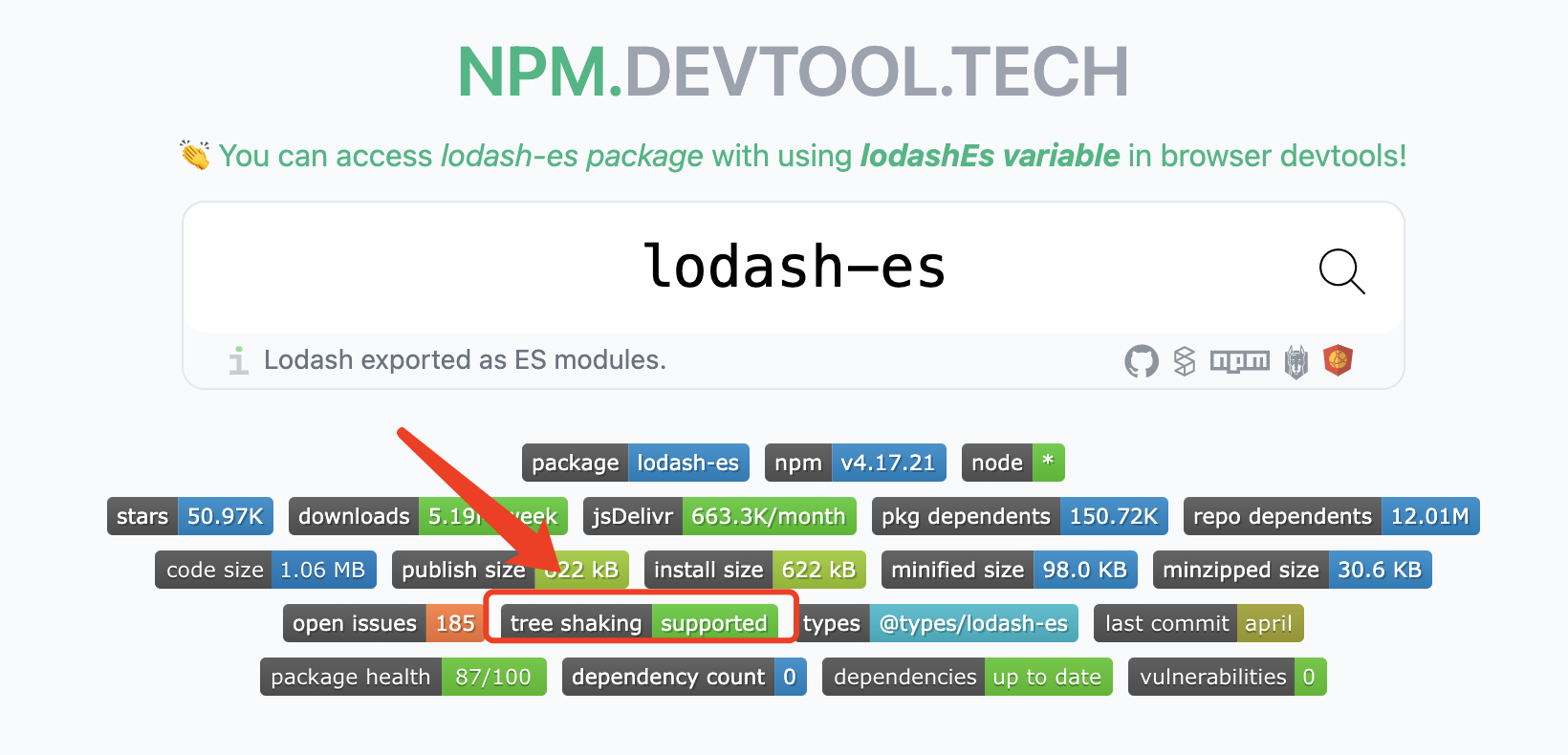# Tree-Shaking的原理是什么
Tree Shaking 指基于 ES Module 进行静态分析,通过 AST 将用不到的函数进行移除,从而减小打包体积。
以下示例可在 Rollup Repl (opens new window) (opens new window)中进行在线演示
/* TREE-SHAKING */
import { sum } from "./maths.js";
console.log(sum(5, 5)); // 10
// maths.js
export function sum(x, y) {
return x + y;
}
// 由于 sub 函数没有引用到,最终将不会对它进行打包
export function sub(x, y) {
return x - y;
}
最终打包过程中,sub 没有被引用到,将不会对它进行打包。以下为打包后代码。
// maths.js
function sum(x, y) {
return x + y;
}
/* TREE-SHAKING */
console.log(sum(5, 5));
# import *
当使用语法 import * 时,Tree Shaking 依然生效。
import * as maths from "./maths";
// Tree Shaking 依然生效
maths.sum(3, 4);
maths["sum"](3, 4);
import * as maths,其中 maths 的数据结构是固定的,无复杂数据,通过 AST 分析可查知其引用关系。
const maths = {
sum() {},
sub() {},
};
# JSON TreeShaking
Tree Shaking 甚至可对 JSON 进行优化。原理是因为 JSON 格式简单,通过 AST 容易预测结果,不像 JS 对象有复杂的类型与副作用。
{
"a": 3,
"b": 4
}
import obj from "./main.json";
// obj.b 由于未使用到,仍旧不会被打包
console.log(obj.a);
# 引入支持 Tree Shaking 的 Package
为了减小生产环境体积,我们可以使用一些支持 ES 的 package,比如使用 lodash-es 替代 lodash。
我们可以在 npm.devtool.tech (opens new window) (opens new window)中查看某个库是否支持 Tree Shaking。

← 目录 core-js 是做什么用的? →